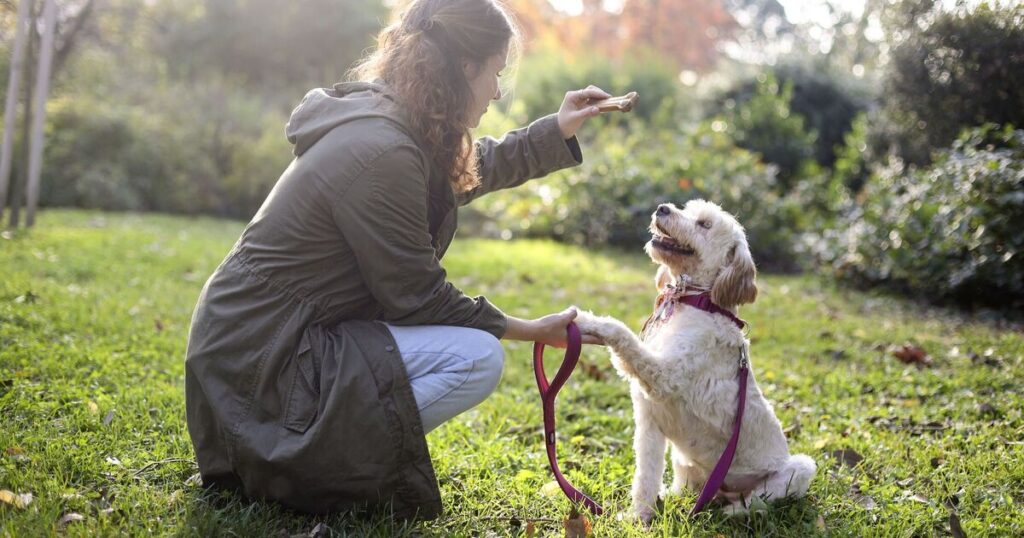
A dog expert has warned pet owners that they could all be making the same mistake when they are rewarding their pooches. According to neuroscientist Sabrina Cohen-Hatton and renowned dog trainer Danny Wells, many owners believe their dogs react best to treats when being rewarded. But many animals react just as well, if not better, to praise.
In their book, What Your Dog is Thinking: The Science Behind Your Dog’s Behaviour and How to Improve It, Sabrina and Danny argue that the “pleasure dogs get from interacting with us means more than food”. They believe many dogs may even feel more driven by praise than a treat when their owners want to reinforce positive behaviors.
They cited a study where dogs’ brain activity was scanned when presented with items that could get praise or a treat. It found some dogs were more drawn to praise while other food, leading the experts to conclude the animals were “individuals with their own preferences”.
In their book, the experts wrote: “What we can see from this study is that the pleasure dogs get from interacting with us means more to them than just food (which is incredible when you consider how inherently vital food is to dogs. For many dogs, praise alone is a powerful reinforcer of behaviour.”
They explained using praise instead of treats also led to a “mutual bond” between the human and animal. They explained it also forms as a type of communication tool.
According to Danny and Sabrina, dogs have developed the ability to sense “cues” from humans. They say this is something that has happened over “thousands of years” and is “neurobiological” rather than simply behavioural.
The 2016 study found that 13 out of 15 dogs examined liked praise just as much or possibly even more than food as a reward. It said: “The stability of this neural marker of preference, and its prediction of dynamic choice behavior, suggests that the majority of our participants found social interaction at least as rewarding as food.
“These findings are consistent with social attachment accounts of the dog–human bond and could provide a proximal neural mechanism supporting that attachment: reward-related activity in the ventral striatum.
“Of note, prior association of owner with food could drive caudate response to praise, and evidence suggests that even just viewing an unfamiliar human face may activate ventral striatum in dogs.”
 Latest World Breaking News Online News Portal
Latest World Breaking News Online News Portal






